AI tools like ChatGPT, Google Gemini and Perplexity are quickly becoming part of how people discover websites. Instead of searching Google directly, users are asking AI tools questions – and sometimes, those tools recommend your site.
But here’s the catch: GA4 doesn’t yet have a neat “AI traffic” channel – at least not yet anyway. If you don’t filter it out (or isolate it), AI referrals will get lumped into referrals or organic search, making it difficult to measure the impact.
But, you can create a custom segment in GA4 to track traffic coming from AI tools. Let’s show you how.
Step 1: Open GA4 Explorations
-
Log in to your GA4 property.
-
In the left-hand menu, click Explore.
-
Click + Create new exploration.
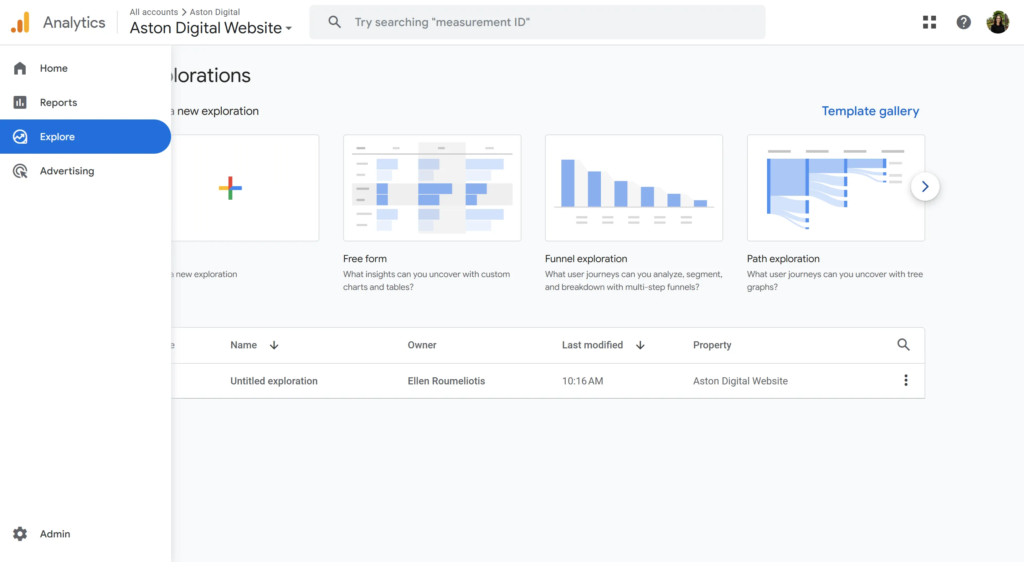
Step 2: Build a Segment for AI Tools
-
In your new exploration, click Add segment.
-
Choose Session segment.
-
Under Condition, select Session source/medium.
-
Change the match type to matches regex.
-
Paste in the following regex and click save:
(chatgpt|openai|anthropic|deepseek|grok).com|(gemini|bard).google.com|(perplexity|claude).ai|(copilot.microsoft|edgeservices.bing).com|edge\scopilot
This regex captures traffic from:
-
ChatGPT (when it links to your site)
-
Google Gemini
-
Perplexity search
-
Claude’s browsing
-
Bing Copilot
-
You.com AI search
-
Anthropic
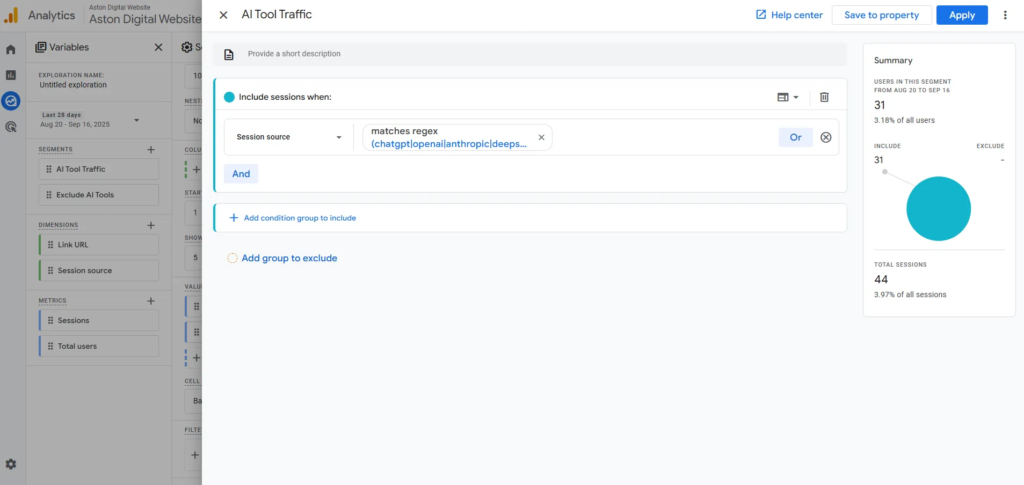
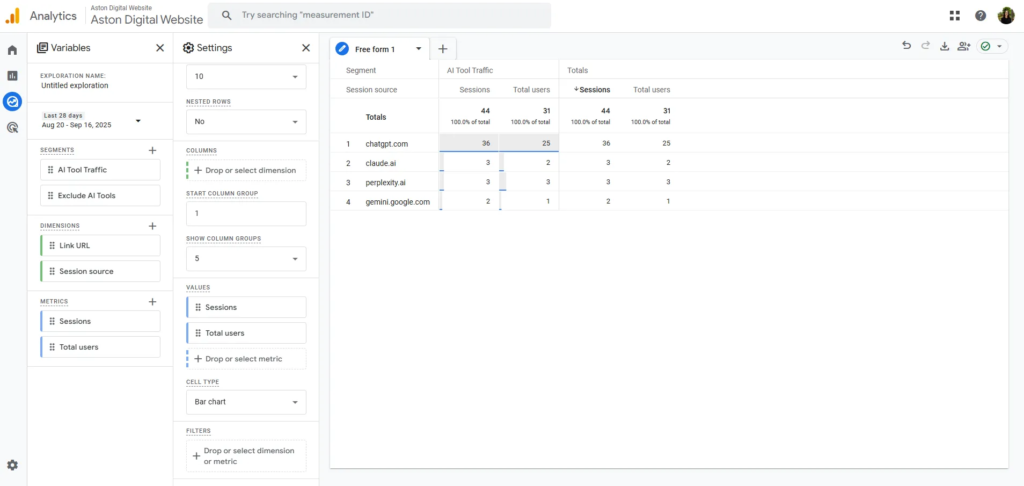
Step 3: Create Two Segments
To get the most out of this analysis, you can create both:
-
AI Tool Traffic: Shows only visits from AI tools (what we’ve created above)
-
Exclude AI Tools: Filters them out so your “traditional” traffic analysis isn’t skewed
Step 4: Analyse the Behaviour
Once applied, you can compare how AI-referred users behave versus your other channels.
Why is this important?
It’s a whole new channel of discovery that didn’t exist two years ago.
Your attribution models don’t yet account for AI referrals. But with this setup, you can start measuring it and get ahead of the curve.
Need help setting this up or interpreting the results? Get in touch with our team to uncover what AI-driven discovery means for your business.
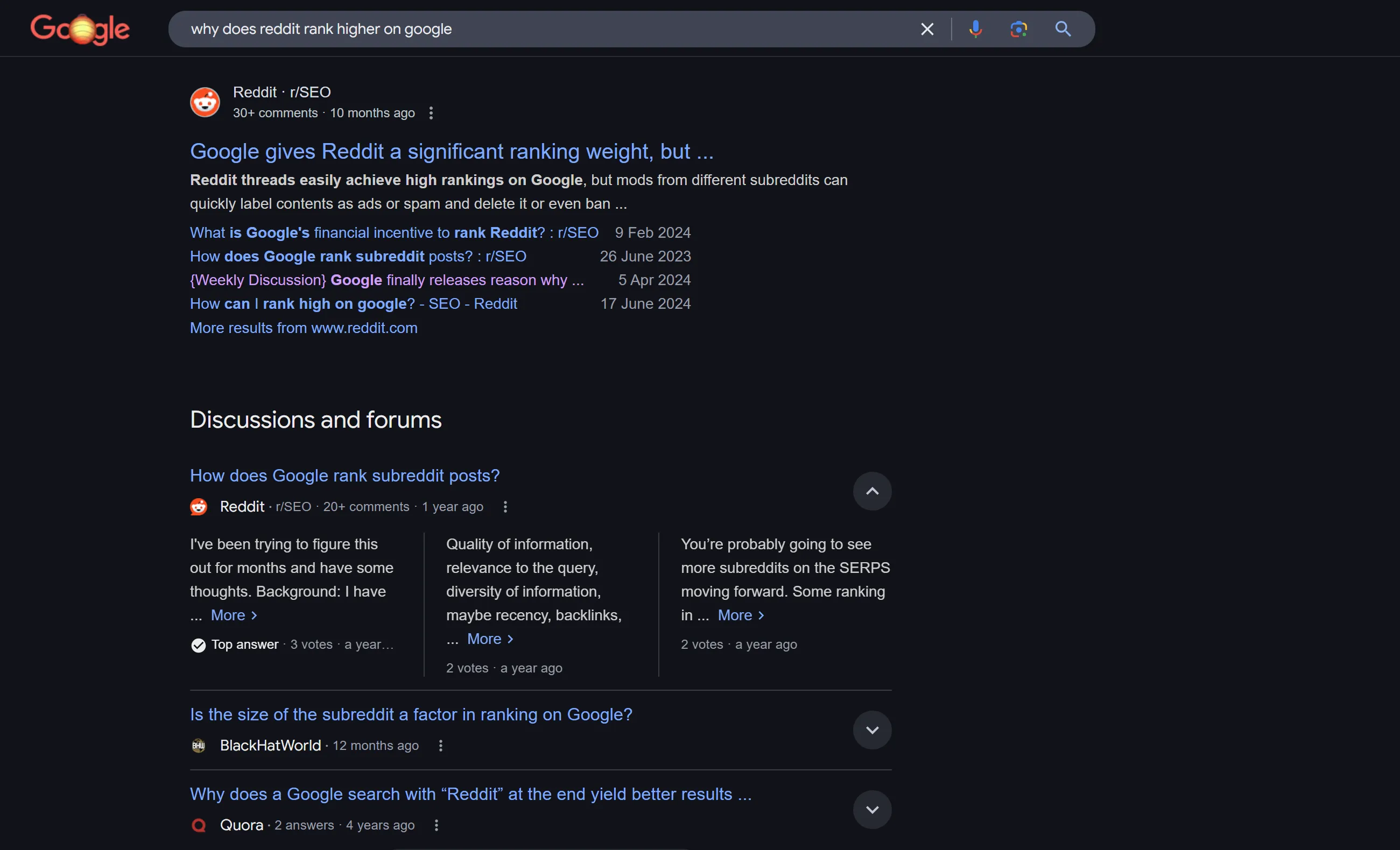
Have you noticed more Reddit and Quora threads appearing in Google search results? Whether you're looking for product recommendations or step-by-step guides, chances are you'll find a [...]
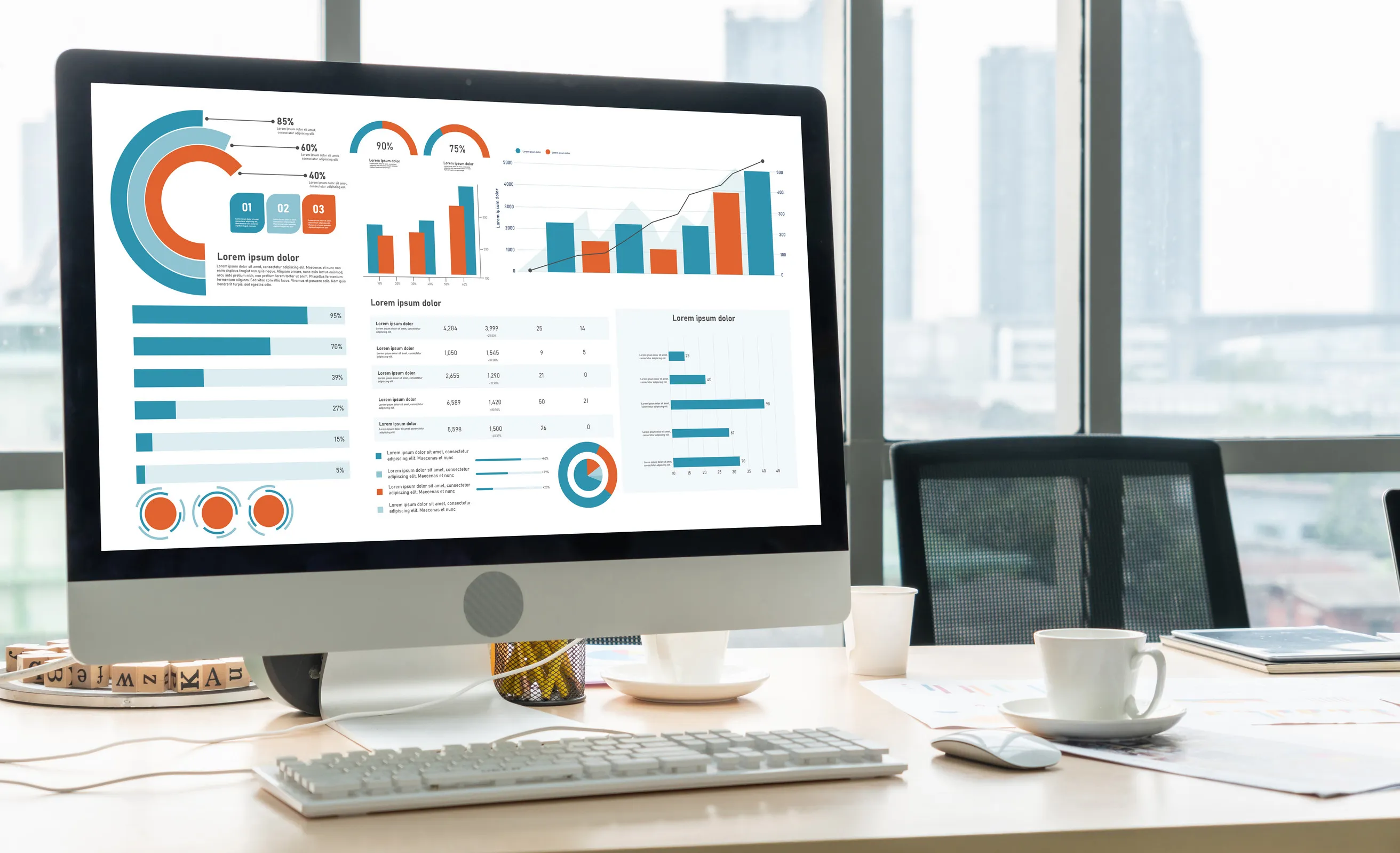
It’s a total coincidence that the title of this article rhymes, but hey, let’s make it a catch cry; thrive in 2025! This year is shaping up [...]
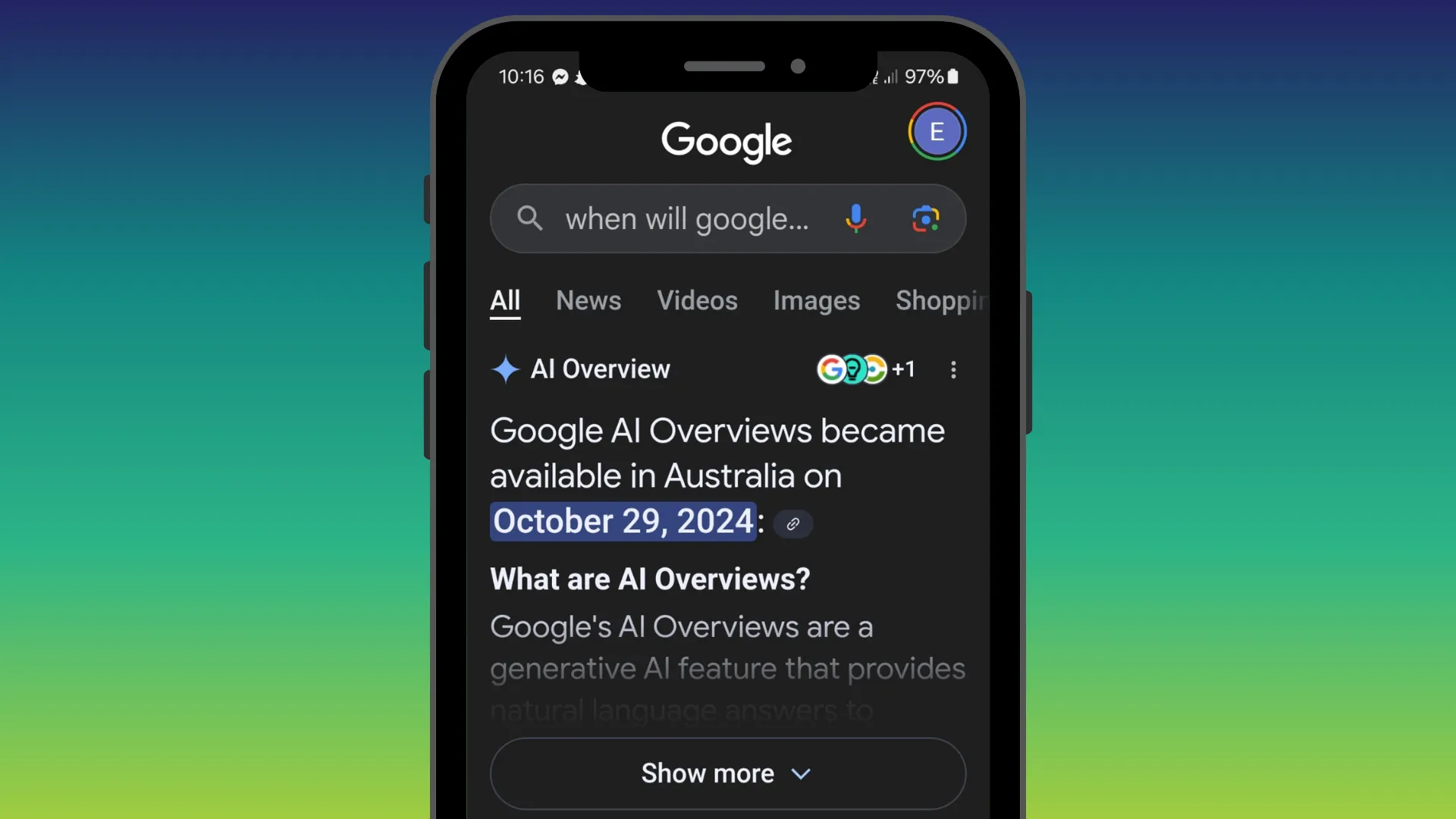
Google’s new search feature, AI Overviews, has recently launched in Australia, transforming how we interact with search engines. With AI-generated summaries now appearing directly in search engine [...]

You know how they say your dopamine levels rise when you eat chocolate? Well, we get that same feeling when we look at data. Why? Because digital [...]

Have you noticed more Reddit and Quora threads appearing in Google search results? Whether you're looking for product recommendations or step-by-step guides, chances are you'll find a [...]

It’s a total coincidence that the title of this article rhymes, but hey, let’s make it a catch cry; thrive in 2025! This year is shaping up [...]

Starting December 13, 2024, Instagram is removing the ability to follow hashtags in the app. This change follows Instagram CEO Adam Mosseri’s recent video Story which explains that [...]

Consumers are becoming more emotive in their buying decisions and are craving genuine connections with brands. Enter low-fidelity (lo-fi) content. More than just a passing trend, lo-fi content [...]

Last week, Facebook announced a major update: 'Views' will now replace impressions as the primary metric for posts and Stories. This change aligns with Instagram's recent metric [...]

It’s the second week of November, and Black Friday promotions are in full swing; emails, ads, organic posts. But, how many of these promotions are you actually paying [...]

Google’s new search feature, AI Overviews, has recently launched in Australia, transforming how we interact with search engines. With AI-generated summaries now appearing directly in search engine [...]

TikTok can be polarising. Those who use it, love it. Those who don’t often find it confusing or aren’t sure how it could fit into their social media [...]

We’ve been geeking out over our latest Audience Intelligence Reports which rolled out to our clients over the last two weeks. Separate from our monthly digital marketing [...]

